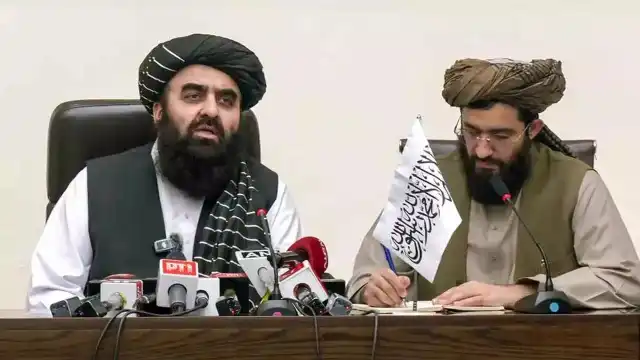Taliban Foreign Minister Amir Khan Muttaqi faced criticism after a press conference at the Afghanistan embassy in New Delhi on Friday excluded female journalists. The move drew strong reactions from media bodies and opposition leaders in India, who condemned the “blatant gender discrimination on Indian soil.”

The Editors Guild of India and the Indian Women Press Corps (IWPC) highlighted the incident as troubling, noting that no objections were raised despite the discriminatory exclusion. Congress leaders Priyanka Gandhi Vadra and Rahul Gandhi called on the Prime Minister to clarify his stance on women’s rights in the context of the event.
Muttaqi Responds
At a press conference on Sunday, attended by both men and women journalists, Muttaqi said there was no deliberate exclusion of women at the earlier event. He explained that the Friday presser’s participation list had been prepared with short notice and included specific journalists, emphasizing that it was neither a technical issue nor an intentional act.
MEA Clarifies India’s Role
The Ministry of External Affairs stated that India had no role in organizing the Friday press conference. The clarification came amid questions about India’s involvement in the event.
Visits and Diplomatic Context
Muttaqi, who arrived in New Delhi on Thursday for a six-day visit, is the first senior Taliban minister to visit India since the group came to power in Afghanistan. His itinerary included a visit to Darul Uloom Deoband in Saharanpur, a prominent Islamic seminary in South Asia.
Earlier, a scheduled visit to Agra was cancelled. The visit occurs against a backdrop of tense regional relations, with both India and Afghanistan having frosty ties with Pakistan over issues including cross-border terrorism.
Significance of the Inclusive Press Conference
The Sunday presser marked an important step in addressing concerns over gender discrimination in diplomatic events. It also signaled an effort by Muttaqi to engage with the Indian media more inclusively, at a time when his visit carries strategic and political sensitivity.
